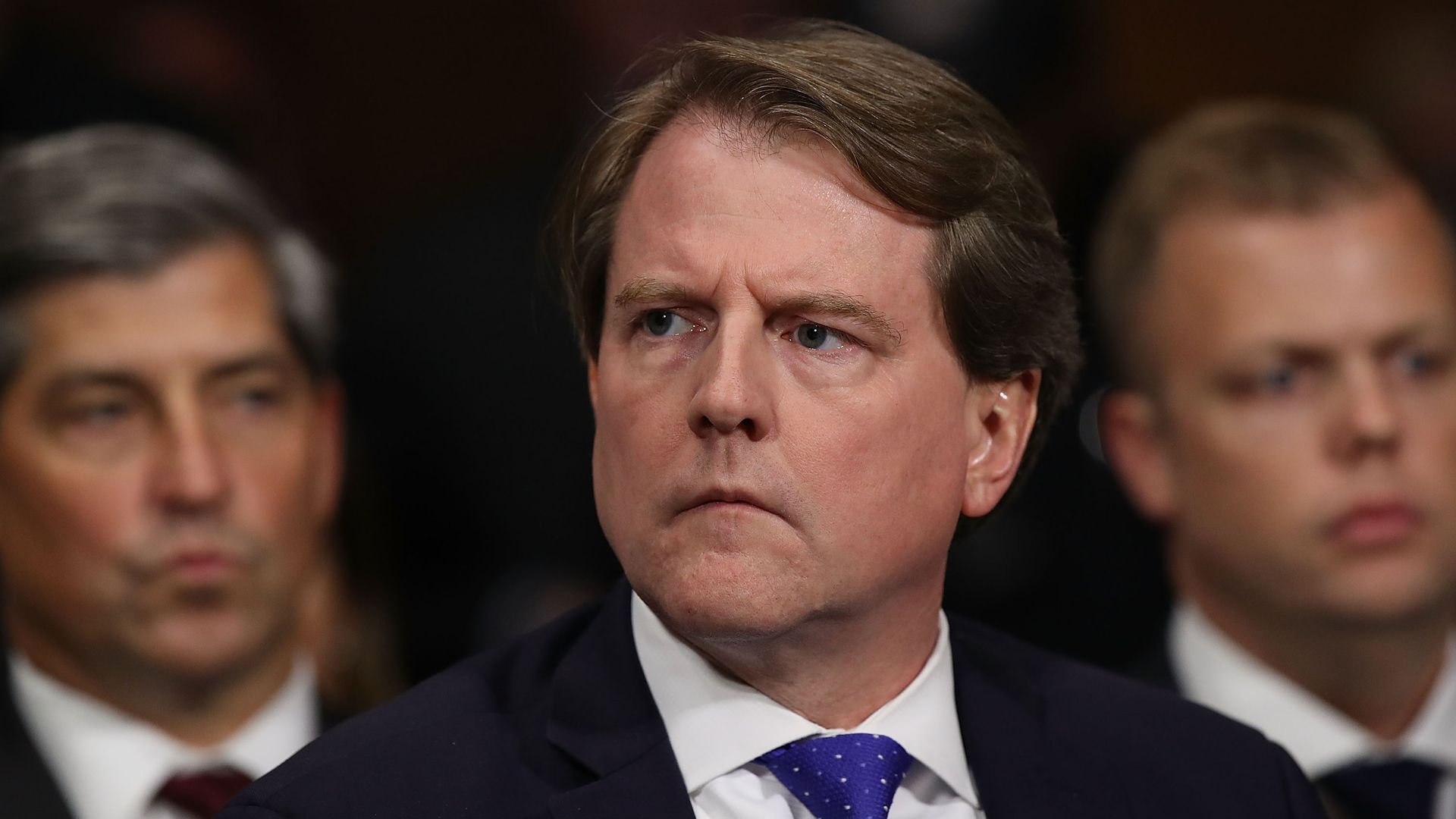McGahn appeals ruling ordering him to comply with House impeachment subpoena
Add Axios as your preferred source to
see more of our stories on Google.

Photo: Win McNamee/Getty Images
A federal judge ruled Monday that former White House counsel Don McGahn must testify under subpoena in the ongoing House impeachment inquiry, rejecting the White House's assertion that its aides are "absolutely immune" from congressional subpoenas. McGahn and the Justice Department appealed the ruling on Tuesday.
"When DOJ insists that Presidents can lawfully prevent their senior-level aides from responding to compelled congressional process and that neither the federal courts nor Congress has the power to do anything about it, DOJ promotes a conception of separation-of-powers principles that gets these constitutional commands exactly backwards. In reality, it is a core tenet of this Nation’s founding that the powers of a monarch must be split between the branches of the government to prevent tyranny."— Judge Ketanji Brown Jackson
Why it matters: McGahn was one of the Mueller investigation's most important witnesses, featuring heavily in the section of the special counsel's report about potential obstruction of justice by Trump.
Between the lines: House Democrats hope that some Trump administration members, including former national security adviser John Bolton, may use the ruling to justify cooperating with the inquiry.
- Earlier this month, Bolton's lawyer said his client was "personally involved" in the matters under investigation and "stands ready" to testify if "the judiciary resolves the conflict in favor of the legislative branch's position respecting such authority," according to NBC News.
Judge Ketanji Brown Jackson writes in the ruling:
"[I]f a duly authorized committee of Congress issues a valid legislative subpoena to a current or former senior-level presidential aide, the law requires the aide to appear as directed, and assert executive privilege as appropriate."
The state of play: The House Judiciary Committee sued McGahn in August to testify before Congress after the Trump administration directed him to ignore its subpoena, arguing that the former counsel was "absolutely immune from compelled congressional testimony."
- The Trump administration has argued that the Constitution does not allow Congress to compel testimony from senior members of the executive branch — and has blasted the impeachment inquiry as "constitutionally illegitimate."
- In response to the ruling, House Judiciary Chairman Jerry Nadler (D-N.Y.) said in a statement: "I am pleased the court has recognized that the Trump Administration has no grounds to withhold critical witness testimony from the House during its impeachment inquiry. ... Now that the court has ruled, I expect him to follow his legal obligations and promptly appear before the Committee."
The big picture: Though the House Intelligence Committee just wrapped up two weeks of public impeachment hearings, the committee's chairman, Rep. Adam Schiff (D-Calif.), refused to commit to setting a finite timetable for the investigation over the weekend.
- "We don't foreclose the possibility of more depositions, more hearings. We are in the process of getting more documents all the time," Schiff told CNN.
- Schiff said in a statement that the ruling on McGahn "made it absolutely clear" that absolute immunity is "not a legitimate basis by which to prohibit senior White House officials from testifying before Congress."
Go deeper:
- What's next for impeachment
- Schiff: I would be leading calls for impeachment if Trump were a Democrat
- White House agrees to full Senate trial if House impeaches Trump
Editor's note: This article has been updated with the news of McGahn's appeal.
